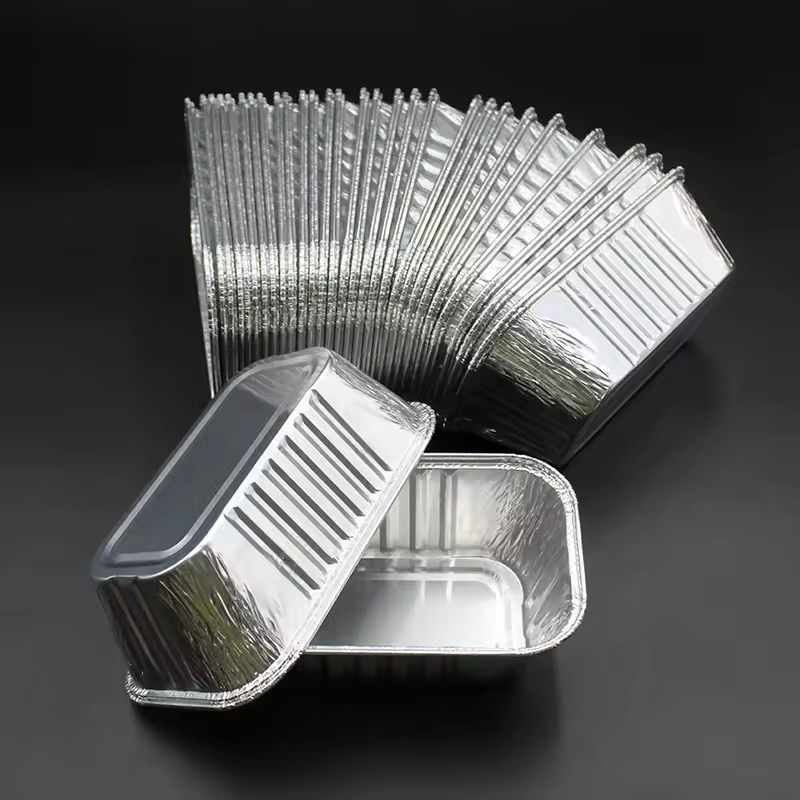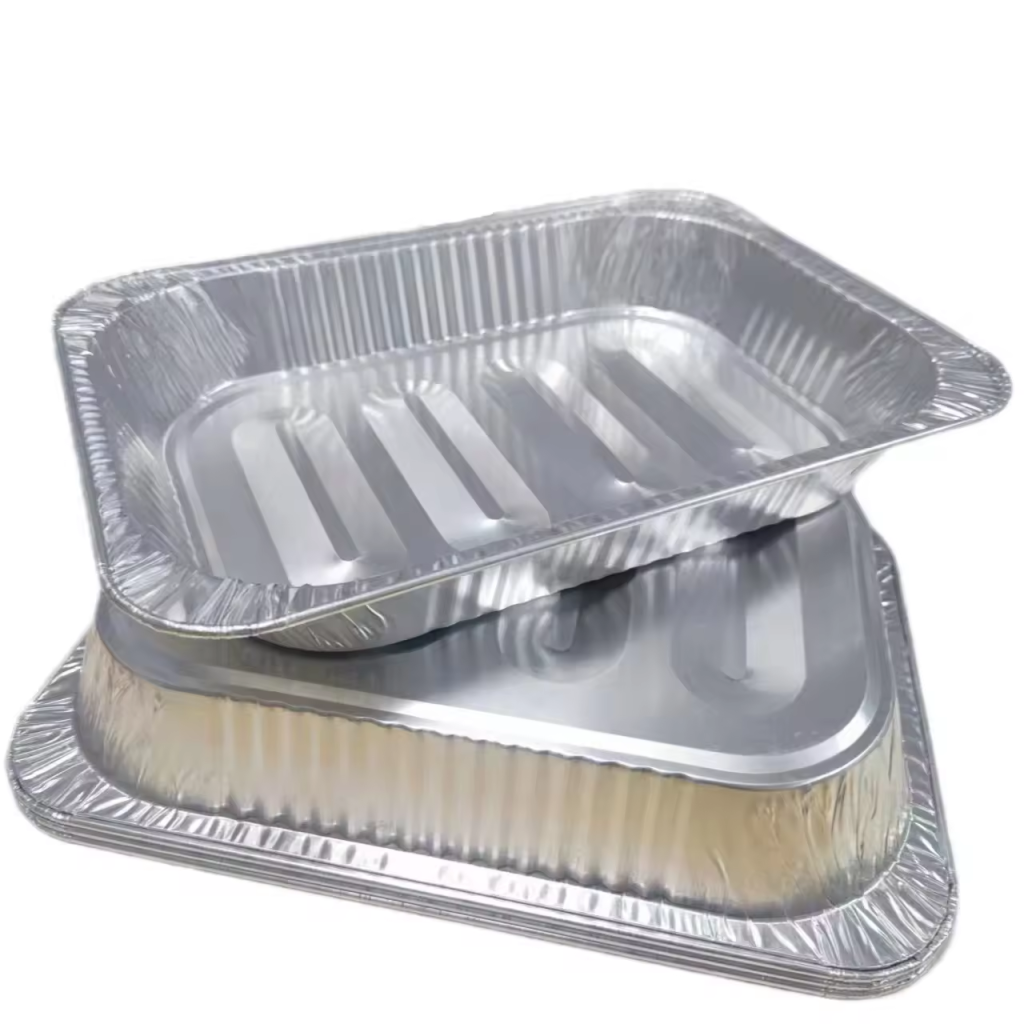Aviation aluminum foil containers are commonly used for in-flight meal services, and their quality requirements are more stringent than those of regular aluminum foil containers. Here are the main reasons why aviation aluminum foil containers have higher quality standards:
Safety Requirements
– Food Safety: Airline catering involves the health of many passengers, so aluminum foil containers must meet strict food safety standards to ensure no harmful substances migrate into the food.
– Structural Strength: The containers need to be strong enough to withstand transportation, storage, and heating without breaking or deforming, ensuring the food can be safely carried.

Hygiene Requirements
– Sterile Environment: The production and packaging of aviation containers must be done in a sterile environment to prevent bacterial and other microbial contamination. Since in-flight meals are stored and distributed over a long period, it is crucial to maintain the freshness and hygiene of the food throughout.
– Sealing: Aluminum foil containers must have excellent sealing properties to prevent food from becoming damp, spoiling, or being contaminated by external factors.
High-Temperature Resistance
– Heating Needs: In-flight meals are often heated at high altitudes, so the aluminum foil containers must withstand high temperatures without releasing harmful substances, while maintaining their structural integrity without deforming or leaking.
– Temperature Variation: The containers must withstand temperature changes from refrigeration to heating, ensuring the food retains its quality and taste throughout the process.
Environmental Requirements
– Recyclability: Airlines focus on environmental sustainability, so aluminum foil containers need to be highly recyclable to reduce waste’s impact on the environment.
– Resource Efficiency: Containers should be lightweight yet strong and functional to minimize resource waste while still performing their required functions.

Functional Requirements
– Insulation Performance: The containers need to have good insulation properties to keep the food at the appropriate temperature and maintain its taste during long distribution times.
– Convenience: The design of the containers should be practical, easy to open, and use, and convenient for distribution and handling in the confined space of an aircraft.
Conclusión
The higher quality requirements for aviation aluminum foil containers are due to their need to meet specific safety, hygiene, high-temperature resistance, environmental, and functional standards. These stringent requirements ensure that passengers receive safe, hygienic, and high-quality meals during flights, reflecting airlines’ commitment to passenger health and environmental protection.


